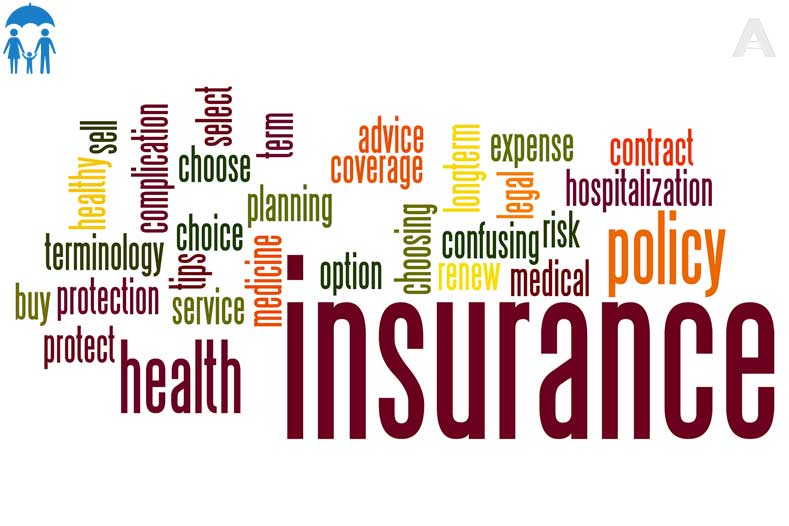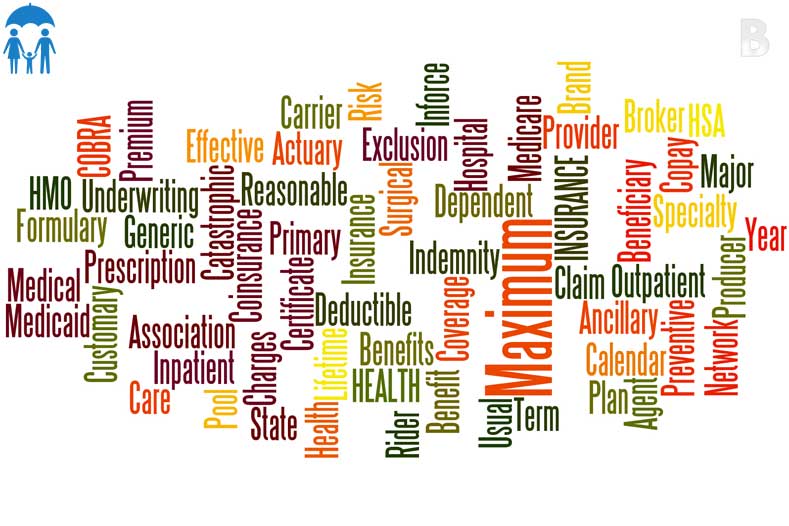P – Glossary of Insurance Terms
This page provides a glossary of insurance terms and definitions that are commonly used in the insurance business. New terms will be added to the glossary over time.
The definitions in this glossary are developed by the NAIC Research and Actuarial Department staff based on various insurance references. These definitions represent a common or general use of the term. Some words and/or phrases may be defined differently by other entities, or used in a context such that the definition shown may not be applicable. naic.org
P
Package Policy – two or more distinct policies combined into a single contract.
Par Value – the nominal or face value of a stock or bond.
Peril – the cause of property damage or personal injury, origin of desire for insurance. “Cause of Loss”
Permanent Life Insurance – policy that remains active for the life of the insured.
Personal Auto Policy – coverage designed to insure private passenger automobiles and certain types of trucks owned by an individual or husband and wife.
Personal Earthquake – earthquake property coverage for personal, family or household purposes.
Personal Flood – separate flood insurance policy sold for personal, family or household purposes.
Personal GAP Insurance – credit insurance that insures the excess of the outstanding indebtedness over the primary property insurance benefits in the event of a total loss to a collateral asset.
Personal Injury Liability – liability coverage for those who have been discriminated against, falsely arrested, illegally detained, libeled, maliciously prosecuted, slandered, suffered from identity theft, mental anguish or alienation of affections, or have had their right of privacy violated.
Personal Injury Protection Coverage/PIP – automobile coverage available in states that have enacted no-fault laws or other auto reparation reform laws for treatment of injuries to the insured and passengers of the insured.
Personal Property – single interest or dual interest credit insurance (where collateral is not a motor vehicle, mobile home, or real estate) that covers perils to goods purchased or used as collateral and that concerns a creditor’s interest in the purchased goods or pledged collateral either in whole or in part; or covers perils to goods purchased in connection with an open-end credit transaction.
Pet Insurance Plans – veterinary care plan insurance policy providing care for a pet animal (e.g., dog or cat) of the insured owner in the event of its illness or accident.
Policy – a written contract ratifying the legality of an insurance agreement.
Policy Dividend – a refund of part of the premium on a participating life insurance policy. Amount of payment is determined by subtracting the actual premium expense from the premium charged. The payment can be taken as cash, applied to a purchase an increment of paid-up insurance, left on deposit with the insurance company or applied to purchase term insurance for one year.
Policy Period – time period during which insurance coverage is in effect.
Policy Reserve – the amount of money allocated specifically for the fulfillment of policy obligations by a life insurance company; reserves are in place to safeguard that the company is able to pay all future claims.
Policyholders Surplus – assets in excess of the liabilities of a company or net income above any monies indebted to legal obligation.
Pollution – environmental contamination.
Pool – an association organized for the purpose of absorbing losses through a risk-sharing mechanism thereby limiting individual exposures.
Preferred Provider Organization (PPO) – arrangement, insured or uninsured, where contracts are established by Health Plan Companies (typically, commercial insurers, and, in some circumstances, by self-insured employers) with health care providers. The Health Plans involved will often designate these contracted providers as “preferred” and will provide an incentive, usually in the form of lower deductibles or co-payments, to encourage covered individuals to use these providers. Members are allowed benefits for non-participating provider services on an indemnity basis with significant copayments and providers are often, but not always, paid on a discounted fee for service basis.
Preferred Risk – insured, or applicant for insurance, who presents likelihood of risk lower than that of the standard applicant.
Premises and Operations – policies covering the liability of an insured to persons who have incurred bodily injury or property damage on an insured’s premises during normal operations or routine maintenance, or from an insured’s business operations either on or off of the insured’s premises.
Premium – Money charged for the insurance coverage reflecting expectation of loss.
Premiums Earned – the portion of premium for which the policy protection or coverage has already been given during the now-expired portion of the policy term.
Premiums Net – is the amount calculated on the basis of the interest and mortality table used to calculate the reporting entity’s statutory policy reserves.
Premiums Written – total premiums generated from all policies (contracts) written by an insurer within a given period of time.
Primary Insurance – coverage that takes precedence when more than one policy covers the same loss.
Prior Approval Law – a state regulatory requirement for pre-approval of all insurance rates and forms.
Private Passenger Auto (PPA) – filings that include singularly or in any combination coverage such as the following: Auto Liability, Personal Injury Protection (PIP), Medical Payments (MP), Uninsured/Underinsured (UM/UIM); Specified Causes of Loss, Comprehensive, and Collision.
Producer – an individual who sells, services, or negotiates insurance policies either on behalf of a company or independently.
Product Liability – insurance coverage protecting the manufacturer, distributor, seller, or lessor of a product against legal liability resulting from a defective condition causing personal injury, or damage, to any individual or entity, associated with the use of the product.
Professional Errors and Omissions Liability – coverage available to pay for liability arising out of the performance of professional or business related duties, with coverage being tailored to the needs of the specific profession. Examples include abstracters, accountants, insurance adjusters, architects, engineers, insurance agents and brokers, lawyers, real estate agents, stockbrokers.
Property – coverage protecting the insured against loss or damage to real or personal property from a variety of perils, including but not limited to fire, lightening, business interruption, loss of rents, glass breakage, tornado, windstorm, hail, water damage, explosion, riot, civil commotion, rain, or damage from aircraft or vehicles.
Pro-rata (proportional) Reinsurance – portion of the losses and premium reinsurer shares with the ceding entity.
Protected Cell – an insurance-linked security retained within the insurance or reinsurance company and is used to insulate the proceeds of the securities offering from the general business risks of the insurer, granting an additional comfort level for investors of the securitized instrument.
Protection and Indemnity (P&I) Insurance – a broad form of marine legal liability insurance coverage.
Provider Sponsored Network (PSN) – formal affiliations of providers, sometimes called “integrated delivery systems”, organized and operated to provide an integrated network of health care providers with which third parties, such as insurance companies, HMOs, or other Health Plan Companies, may contract for health care services to covered individuals. Some models of integration include Physician Hospital Organizations, Management Service Organizations, Group Practices Without Walls, Medical Foundations, and Health Provider Cooperatives.
Provisions – contingencies outlined in an insurance policy.
Proximate Cause – event covered under insured’s policy agreement.
Public Adjuster – independent claims adjuster representing policyholders instead of insurance companies.
Pure Premium – that portion of the premium equal to expected losses void of insurance company expenses, premium taxes, contingencies, or profit margin.
Pure Risk – circumstance including possibility of loss or no loss but no possibility of gain.




